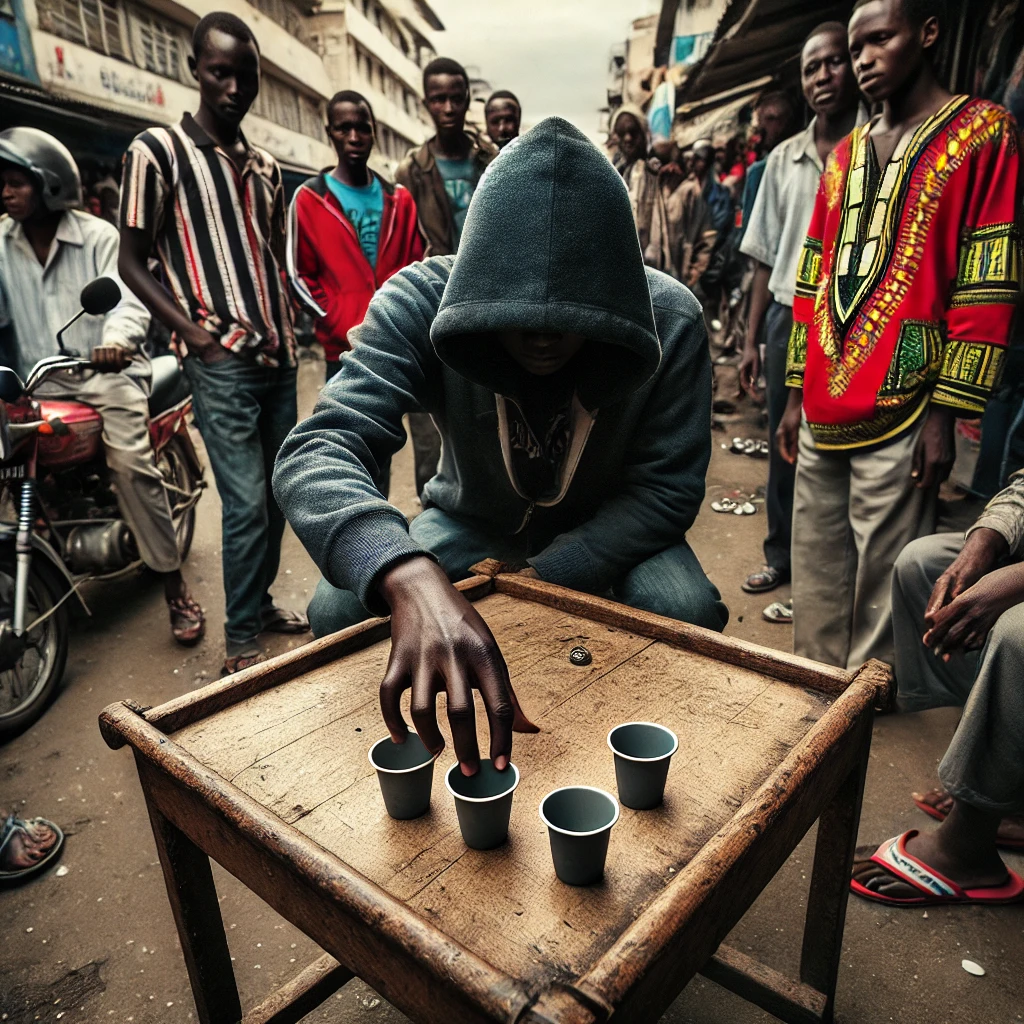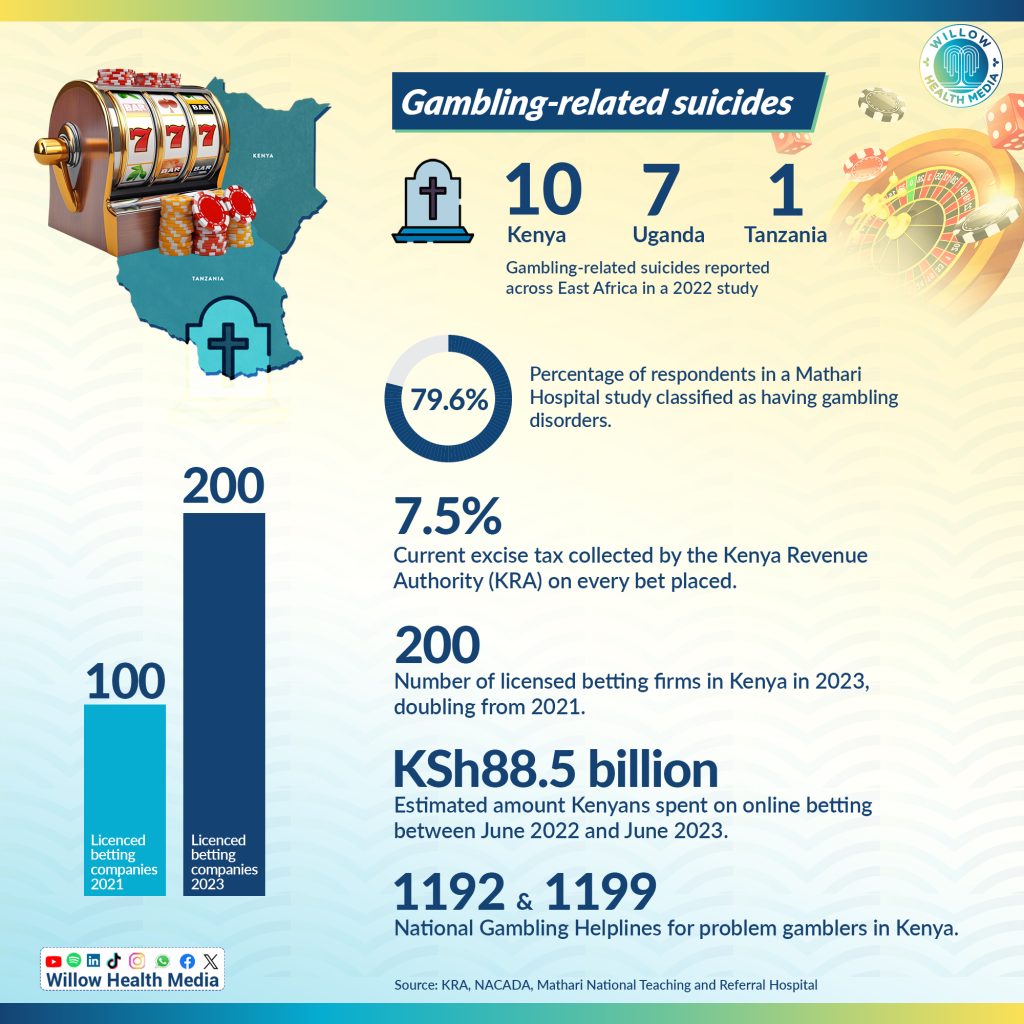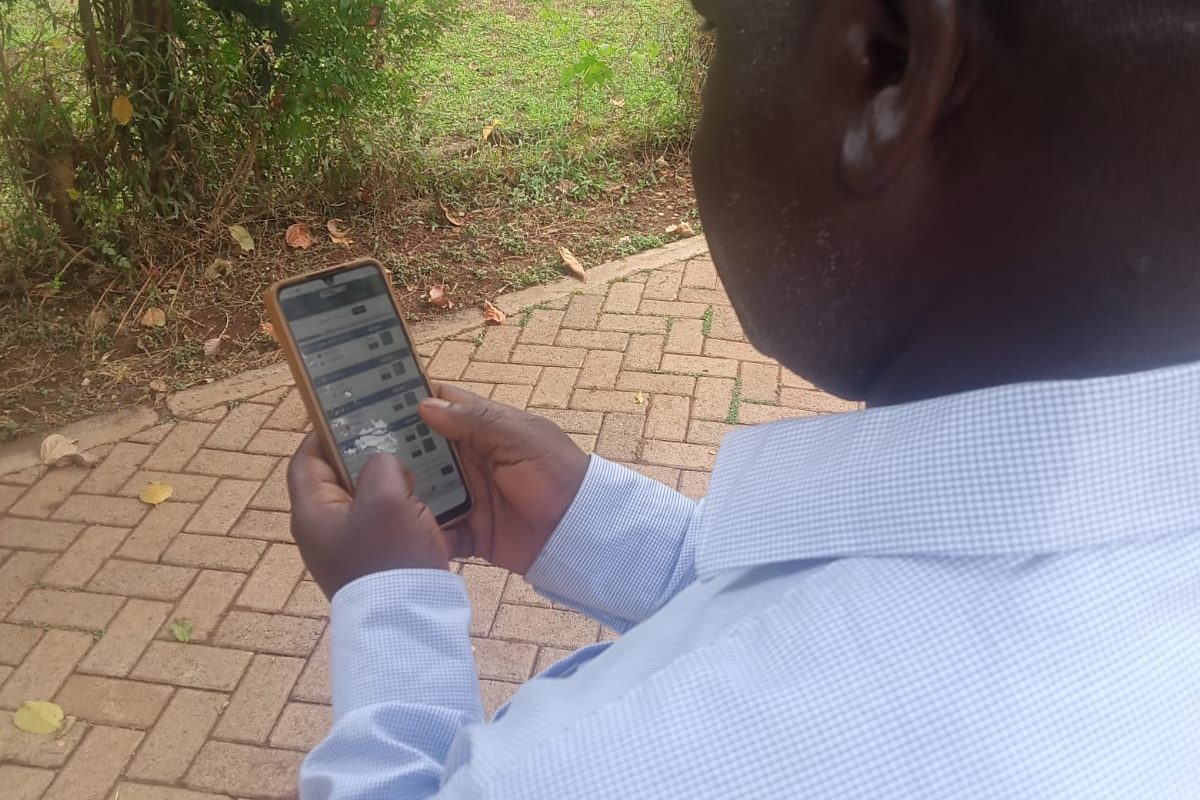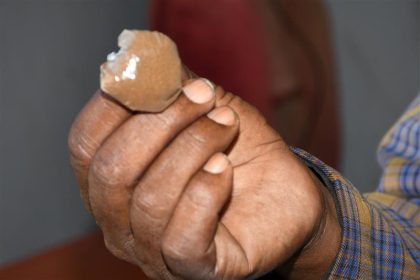Betting addicts suffer the “sunk-cost fallacy” where, instead of quitting, they continue gambling because they’ve already invested too much- Davis Achuti, Psychologist
Let us break it down for you—it’s a really sad story. In October 2024, tragedy struck in Shinyalu Constituency, Kakamega County, when Susan Njeri, popularly known as Mama Sammy, a small-scale trader, died by suicide after losing Ksh60,000 on the betting platform Aviator. Her close friend, Rebecca Hadji, recalled how Mama Sammy had been visibly distressed in the days leading up to her death. It was clear something was weighing heavily on her.

This devastating incident followed a similar tragedy that May, when Brian Ongwae, a student at the Catholic University of East Africa (CUEA), also died by suicide in Lang’ata after losing Ksh15,000— tuition fees—on a bet.
Betting in Kenya has evolved from Pata-Potea playing card bets and charity sweepstake tickets sold on street corners to a massive industry.
Registered betting firms doubled to 200 between 2021 and 2023, with radio stations actively promoting gambling as a family activity. The widespread access to the internet and the availability of affordable smartphones have only made gambling more accessible and gambling adverts more ubiquitous on social media.
How the lives of jackpot winners were transformed overnight only stoked gambling fires.
To put this into perspective, consider that Kenyans placed a record Ksh88.5 billion in online bets by June 2023, defying a government crackdown and suffocating taxation, according to the Kenya Revenue Authority (KRA). This translates to Ksh242 million daily, Ksh10 million hourly and Ksh2,800 per second.
University students who lost tuition fees to gambling constituted four out of 17 cases
This surge in betting has led to a rise in ludomania, or problem gambling, a mental disorder with far-reaching consequences. A 2022 study published in the National Library of Medicine by Virve Marionneau and Janne Nikkinen documented cases of gambling-related suicides, predominantly among young males aged 16 to 40, often linked to financial losses from soccer betting in East Africa.
The study, titled Gambling-related suicides and suicidality: A systematic review of qualitative evidence, examined press reports due to the lack of a formal suicide database. It identified 18 gambling-related suicides, all involving males aged 16 to 40 years, with the highest cases reported in Kenya (10), Uganda (7) and Tanzania (1). University students who lost tuition fees to gambling constituted four out of 17 cases, with betting on soccer as the commonest activity linked to these tragedies (11 out of 15). Hanging was the predominant method of suicide (10 out of 16) reported in media outlets from 2019 to 2021.

Psychologist Davis Achuti of Oasis Hospital in Nairobi explains that gamblers suffer from “a phenomenon called the sunk-cost fallacy often traps individuals in this cycle,” he explains. “This occurs when a person is unwilling to abandon gambling because they’ve already invested heavily in it, even when it’s clear that stopping would be more beneficial.”
He warns that beyond individual tragedies, gambling addiction leads to family breakdowns, financial ruin, legal troubles, strained relationships and significant health challenges.
Achuti notes that while gambling addiction was previously rare among his clients, it now ranks alongside cigarette, alcohol and sex addictions and “The situation could worsen as the big radio industry actively promotes gambling, framing it as a family-friendly activity.” He adds that gamblers struggle with addiction, aggravating “depression, insomnia, anxiety, stress, temperament, fits of rage, impaired concentration, and panic attacks.”
Gambling products, lax regulations and mobile accessibility have worsened the problem
He cites a popular advertisement where the main character—a man—asks his wife for Ksh20 to place a bet and strike it rich. The advert portrays gambling as trivial and light-hearted, even when it involves prioritizing a bet over family needs.

The prevalence of gambling disorder among individuals seeking psychiatric treatment has been a growing concern as a 2016 study conducted at Mathari National Teaching and Referral Hospital in Nairobi, titled Prevalence of Gambling Disorder among Patients Seeking Psychiatric Treatment, revealed. The study by Dr Alfred Miriti, a consulting psychiatrist but then a Master’s student, noted that “In Kenya, the rise in gambling products, lax regulations, and mobile accessibility have worsened the problem, leading to significant psychiatric and social challenges.”
The study primarily involved young adults, with a quarter of the 240 respondents seeking psychiatric treatment at Mathari Hospital aged 25 to 31. Men dominated the sample at 69.8%, while women accounted for 30.2%. Marital status offered a glimpse into their lives: 43.6% were married, 34% single, and a smaller percentage were living with partners or navigating life post-divorce or widowhood.
Education levels varied, but opportunities appeared scarce. A third of respondents had college certificates, yet 38.8% were unemployed, and 37.2% earned less than Ksh10,000 per month—a figure far below the cost of living. These harsh economic realities may have driven many to gambling, seeking hope in a game of chance.
Smokers had a much higher prevalence of gambling disorders compared to their non-smoking counterparts
The findings reveal an unsettling trend: nearly 75% of participants were classified as pathological gamblers, far surpassing the recreational gamblers who made up 17.6%. Combining pathological and problem gamblers showed that a staggering 79.55% of the respondents struggled with gambling disorders.
Smoking compounded the issue. Half of the respondents were smokers, and the study found that smokers had a much higher prevalence of gambling disorders (90.2%) compared to their non-smoking counterparts (70.3%).
Mental health concerns added another layer of complexity. Schizophrenia emerged as the most common diagnosis, with 57 cases followed by drug-induced psychosis (29.5%) and bipolar mood disorder (23.7%). Alarmingly, those with drug-induced psychosis were the most likely to develop problematic gambling habits, with an 85.7% incidence rate.
While gambling disorders were more common among men (86.6%), women were not spared, with 63.8% also affected. About 76.2% of respondents viewed gambling negatively with a small but notable group (16.6%) expressing positive attitudes, lured by the elusive promise of quick wealth or wins they made.
Jacky Inyanji, who developed a negative attitude toward betting after a string of losses, told Willow Health: “I rarely bet nowadays, unlike my sister, a frequent gambler. Strangely, she keeps winning despite knowing little about the football games she bets on. You can’t stop her—she even increased her business stock with winnings from a bet.”
Commenting on the dangers of betting, @UlobeX posted on X on November 25, 2024: “I gambled in campus, though I never incurred losses since I won big twice (I only bet on jackpots). However, I eventually stopped and shifted to long-term goals like acquiring skills—something that will always put food on the table. Looking back, I’m glad I quit. Luck comes once in a lifetime, and sometimes, it never does.”
Gambling crisis in Kenya is fueled by a mix of economic, social and personal factors
Another blogger, @GeorgeNgigi10, warned: “Betting will cripple you—financially and even in your relationships. Earlier this year, I lost over 500K. My salary is 80K per month, yet I found myself borrowing left, right, and center.”

Similarly, @kmuriithi003 shared a concerning experience: “I realized my house help plays Aviator. I pay her on the 26th, and within a week, she’s already borrowing 50 bob. Gambling is a psychological addiction—walk away from it. Don’t even start!”
Surprisingly, the Mathari Hospital study found no direct link between gambling disorders and diagnosed psychiatric conditions, suggesting that the gambling crisis in Kenya is fueled by a mix of economic, social, and personal factors rather than mental health alone. Even so, the Lancet Public Health Commission on gambling in October 2024 recommended that governments and policymakers across the globe treat gambling as a public health issue via stronger policy and regulatory controls—like for other addictive and health-harming commodities, such as alcohol and tobacco.
A staggering 450 million people worldwide grapple with at least one behavioural symptom of gambling or have faced significant personal, social, or health consequences linked to it, according to The Commission’s comprehensive 45-page report which noted that “gambling is not an ordinary kind of leisure; it can be a health-harming, addictive behaviour.”
Among them, more than 80 million individuals suffer from gambling disorder—a recognized mental health condition marked by an unrelenting pattern of betting that persists despite its profound and often devastating impact on their lives.
Rope in lotteries and gambling disguised as competitions, especially by radio stations
Locally, Nyeri Town MP Duncan Mathenge has proposed a motion aimed at tightening the regulatory framework governing Kenya’s gambling industry while promoting “responsible gambling” and potential links between the gambling industry and criminal activities, like money laundering.
This comes as the number of licensed betting firms in Kenya doubled to 200 between 2021 and 2023, despite increased taxation. KRA currently collects Sh7.50 for every Sh100 wagered through a 7.5% excise tax, translating to more than Ksh6 billion annually.

One of the primary concerns raised is the need for stricter enforcement of the Betting, Lotteries, and Gaming Act to rope in lotteries and gambling disguised as competitions, especially by radio stations, and ensure they’re fully compliant with the law.
The motion also calls for stricter regulation of digital betting platforms, with a particular focus on protecting vulnerable groups, including minors, individuals prone to gambling addiction, and elderly men who are easily swayed by radio gambling advertisements.
In rural areas, older men often engage in traditional forms of betting, which are deeply rooted in cultural and social practices. Games like bao (a strategic board game) and events like cockfighting or bullfighting serve as informal wagering platforms, blending gambling with community bonding and cultural preservation. In Western Kenya, for instance, older men frequently participate in betting through radio and bullfighting events, a social tradition among the Luhya community.
A 2017 GeoPoll survey notes that while most bettors (54%) were aged 18–35, older adults aged 50 and above still formed a notable segment of the betting population, with four per cent reporting engagement in betting activities. The multi-country poll, with Kenya as a primary focus due to its booming betting market said that betting is often driven by a mix of leisure, financial desperation, and the hope of supplementing limited incomes. The other countries in the polls were Uganda, Tanzania, Ghana, Nigeria, and South Africa.
Gambling should be treated like a public health concern…like overeating
But there are challenges: Betting Control and Licensing Board CEO, Peter Mbungi, last August told the National Assembly’s Departmental Committee on Administration and Interior Security that despite generating about Sh256 million in revenue in the 2023/2024 financial year, his board was allocated Sh109 million for operations, including salaries, making it difficult “to establish a well-regulated gaming industry that ensures public protection” and asked for substantial investment in advanced monitoring tools “to enable our real-time oversight of gambling activities.”

Dr Adolf Muyoti, a public health specialist, says gambling should be treated like a public health concern, similar to other non-substance addictive disorders, including shopping, video gaming, and overeating. He reckons that addressing gambling requires comprehensive strategies, including public awareness campaigns, mental health support services and regulatory measures.
“But with the increasingly complex commercial ecosystem for gambling and its digital transformation, which offers unparalleled capacities for gambling, it remains to be seen what kind of legislation can achieve in stemming the habit,” he says, adding that “Every solution must tackle unemployment and poverty, which often lead people to betting, and access to mental health care while creating awareness about the dangers of gambling” especially using influential figures, like radio presenters, whose trust is used to gets listeners betting.
Allan Odhiambo, a sociologist at Homa Bay County Referral Hospital, emphasizes the need for public awareness, particularly the impact of gambling on families. Odhiambo says most gamblers are in denial about their addiction due to stigma, which explains the numerous suicide notes left pointing to crippling debts, especially among young men. “Fear and stigma are where the problem lies… It’s shameful; some men even bet using chama money from their wives.”






















